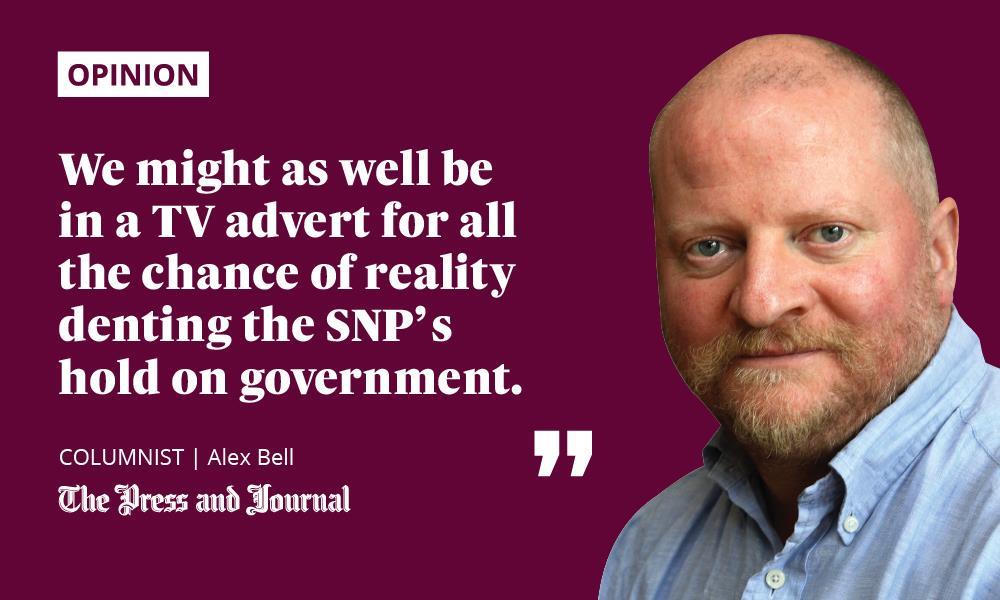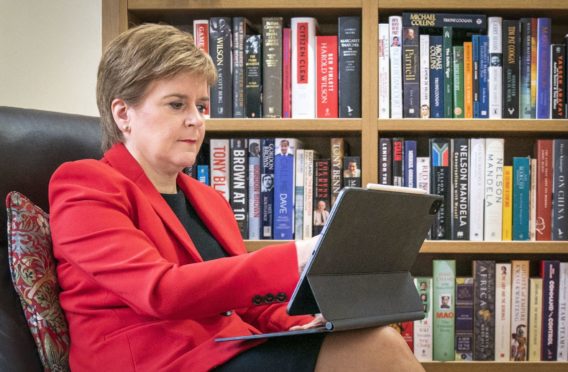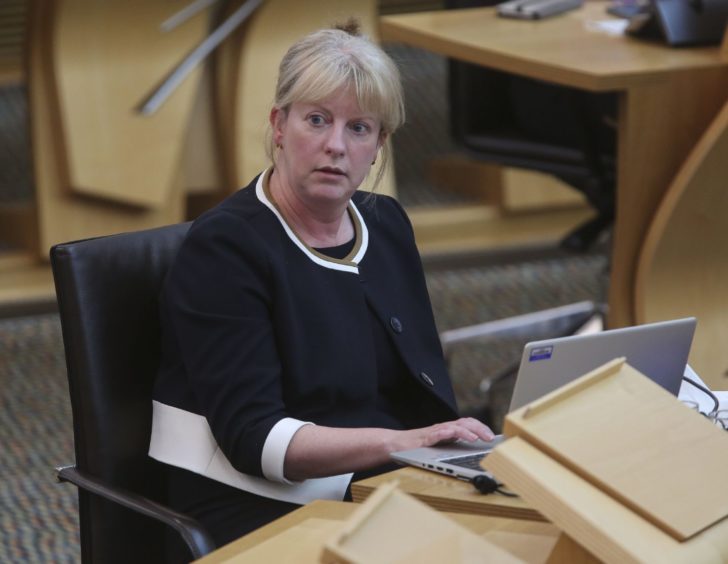Reading extracts from the SNP conference brought to mind The New Seekers.
Instead of hearing Sturgeon’s voice assuring us independence will be wonderful, the lyric to I’d Like to Teach the World to Sing got stuck in my head.
Imagine Shona Robison singing “in perfect harmony”, Michael Russell strumming a guitar as he intones: “I’d like to build a world a home, and furnish it with love”, before Angus Robertson reaches for a bottle of Coca-Cola, takes a sip, then sings about apple trees and honey bees and snow white turtle doves.
The song was famously used by Coke for an advert in the 1970s.

We know why Coke makes you happy. It’s the trowel of sugar dissolved in every bottle.
Quite why the promise of independence does remains a mystery. Is it Cola or Kool Aid, hope or delusion?
It doesn’t really matter. There’s no opposition and no chance of indyref2.
We might as well be in a TV advert for all the chance of reality denting the SNP’s hold on government. Which is why it would be an ideal time to pitch a more credible version of independence.
Speeches light on practicalities
Here is part of Shona Robison’s speech to conference:
“I want our national parliament to have the powers to tackle the drivers of child poverty. I want our parliament to be able to raise the minimum wage to the real living wage and stop insecure employment.”
All admirable ambitions, but no explanation of the causal link between independence and these policies. Instead we get airy assertion.
Nicola Sturgeon’s speech included this:
“Independence works. Our neighbours in north-west Europe are wealthier than the UK. All of them.
“They are more equal than the UK. They have lower levels of poverty. They have higher productivity, which drives better living standards.”
The SNP leader is referring to a piece of research, commissioned by the party from the House of Commons Library, which simply ranks nations by a single measure from the International Monetary Fund.
As political shrapnel, it’s OK. But as proof of a causal link between independence and the scandi nirvana imagined by Robison, it is useless.
"For countries of Scotland’s size, independence works"
Scottish First Minister Nicola Sturgeon tells the SNP conference that "democracy must and democracy will prevail" as she makes case for indyref2 https://t.co/qqWTBHSNor pic.twitter.com/Hym7nl5aQZ
— BBC Politics (@BBCPolitics) September 13, 2021
Norway is richer per head because of oil.
Ireland and Luxembourg are richer because of a statistical twist which attributes tax dodging corporation wealth to low tax regimes.
Germany is richer because it makes lots of stuff.
SNP strangely silent on proper policy
What’s odd is that proper research by an independent and highly regarded institution supports a more sensible version of Scottish independence. No snow white turtle doves, just hard work and pragmatism.
“None of this means that Scotland cannot afford to be independent, nor that there aren’t a range of opportunities for better policy to improve performance and better address Scottish needs and preferences.
“If such policies can be developed and implemented, this might in the longer-term allow more to be spent on public services and more to be kept in Scottish people’s pockets.”
That is from the Institute for Fiscal Studies.
Most UK politicians would give their eye tooth for such unequivocal support. The SNP, usually so keen on outside affirmation, never mention it. The reason? Policy is not the SNP’s strong suit.
SNP has yet to act on its own reforms
In 2010 the nationalist government set up the Christie Commission to investigate how Scotland could be reformed to better serve its people.
Ten years later, virtually nothing has been done to deliver its recommendations.
“The SNP keeps clear blue water between them and the Tories, while sucking the words from Labour’s mouth
This prompted the auditor general to say recently: “Christie set out an agenda to put people at the heart of public services… But audit work consistently shows a gap between policy ambitions and delivery on the ground.”
Rhetorically, the SNP have established their brand of independence as big state, welfare heavy. It keeps clear blue water between them and the Tories, while sucking the words from Labour’s mouth.
The problem is that they won’t deliver it now, with the powers they have. And they won’t show how it will be delivered post-independence. This creates a huge credibility gap.
At a time when public spending and debt is at a record high and the UK prime minister is actually raising taxes, the SNP approach looks alarmingly casual.
Further, it ignores the party’s own Growth Commission which accepted the broad principle that Scotland benefited from a cash transfer from southern England. Not by as much as Wales or Northern Ireland, but still by around £2,500 per person.
Same old song from SNP leadership
What’s changed since the last independence white paper is this: the SNP accept Scotland is in debt to a dramatic point while pledging spending of a much higher level.
Previously they did not acknowledge the former, while being vague on the latter.
The elastic band of economic figures is being pulled from both ends. This is the ideal time to pitch a more prosaic and plausible version of Scottish independence.
The SNP conference showed the leadership have no appetite for that hard work.
It showed Scotland that senior Nats are happy with the old songs, not fit for new challenges.

